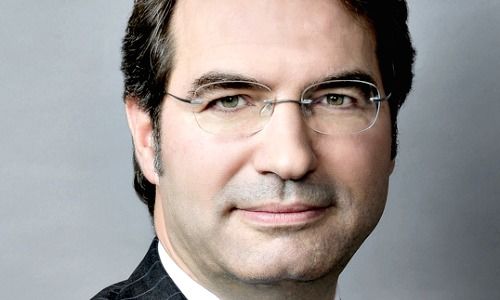As I said, our strategy through 2022 is for organic growth primarily. That said, we have enough capital to make an acquisition to complement our business. With the recent takeover of BSI Bank and of Shaw and Partners in Australia we showed that we are able to stem such acquisitions.
Our credo is to create goodwill and not to pay too much for goodwill. Hence, we are looking around, but aren’t forced to act.
Where do you look in particular, in Switzerland or abroad?
For us, Switzerland is the largest market and very important. I would like to expand the critical mass in Switzerland. After the acquisition of BSI we developed an onshore strategy, which we are now implementing.
Which were the milestones in 2019 that you reached?
We managed the turnaround this year. 2019 is synonymous with a new beginning.
«What remained is uncertainty, which nobody likes»
Never before did we hire so many new client relationship officers as in 2019 – about 150. That’s almost double the amount we had intended to originally. It is proof of the atmosphere of departure that is prevailing at our company. The quality of this new team is very high.
How did the business do in Hong Kong this year, given the protests and bloody battles between the democracy camp and the police?
The situation is totally new to all of us and something we have to deal with. The last time I was in Hong Kong was August when the situation hardened again.
I have to compliment my staff in Hong Kong for having managed to continue the business despite the adverse conditions. But what remained is uncertainty, which nobody likes, not the people, not investors, and not the clients.
Under these conditions, is there a future for the financial market of Hong Kong?
I believe so. The proximity to China will remain important from an economic point of view, and the big international firms have not announced any plans to leave. The activities on the Hong Kong stock exchange, among them an IPO of Alibaba, underlines the persisting importance of the financial market.
Will EFG International move any of its capacities to Singapore?
No, we will stay in Hong Kong and we will expand both locations. At the moment, we see no need to change our growth strategy. But we would of course welcome a calming of the situation.
Did clients move their assets to the security of Singapore?
There’s been talk about it on an anecdotal level. From our bank, I don’t know of any such cases.
«For wealth management, Brexit isn't such a problem»
In comparison, the effects of the euro crisis of 2011 and 2012 were much stronger.
How did you prepare for Brexit?
For wealth management, Brexit isn’t such a problem as it is for other areas of the financial market. The share of EU clients in London and Great Britain respectively at our bank is relatively moderate. The vast majority of clients are either from Great Britain, ie onshore, or from the Middle East, Eastern Europe or Asia, including India. A clientele hardly affected by Brexit.
«The Swiss financial market has a very strong set of cards»
We installed a new management team in London this year and will have very good growth in 2019, as was the case over the past seven years.
Is the same true for Switzerland?
As I said, Switzerland is our biggest market. Our credo for Switzerland after the completion of the integration of BSI is «back to growth». We are now more oriented towards the outside.
Zurich and Geneva are developing well both on- and offshore. The development in Lugano is more complicated. The growth isn’t where we would like to see it. The access to Italy is almost barred on grounds of EU regulation.
What is the outlook for the Swiss financial market?
If we consider the geopolitical situation of the world, the Swiss financial market has a very strong set of cards. I always say that private banking at the end of the day also is about diversification of risk from countries that are politically unsafe and unstable.
Piergiorgio Pradelli, 52, has been CEO of EFG International and EFG Bank since last year. He is a board member at EFG Bank (Monaco), EFG Investment and Wealth Solutions as well as Patrimony 1873. Before his promotion to CEO, Pradelli was deputy CEO and, since June 2012, CFO of EFG. He joined the company in 2003 and played an important role in its 2005 IPO. Pradelli started his career in Turin at Deutsche Bank, where he also held managerial roles in Frankfurt and London between 1991 and 2003. He has a degree in economics from the University of Turin.
- << Back
- Page 2 of 2




































